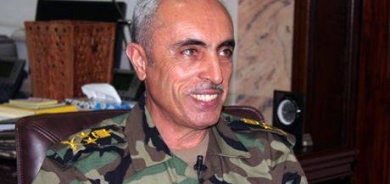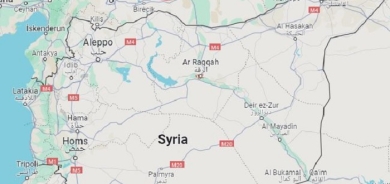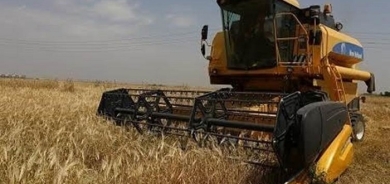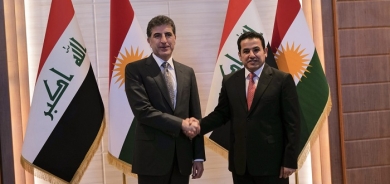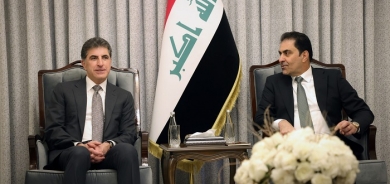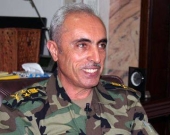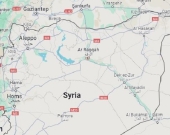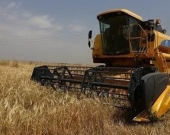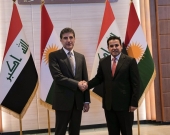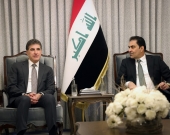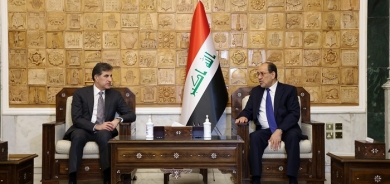Syria awaits referendum result as rift develops in Syrian opposition group
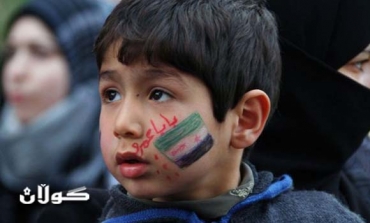
At least 63 Syrian civilians and soldiers were killed in the country’s bitter political violence on Sunday, the day of the vote on a new constitution that could keep Assad in power until 2028. The result is viewed as a foregone conclusion.
Syrian government troops fired heavy barrages of artillery and rockets on Monday into districts across Homs, where rebels have been holding out through weeks of bombardment, opposition activists said.
“Intense shelling started on Khalidiya, Ashira, Bayada, Baba Amro and the old city at dawn,” activist Mohammad al-Homsi told Reuters from Homs.
“The army is firing from the main thoroughfares deep into alleyways and side streets,” he added.
Splinter organization
Prominent members of the main SNC formed a splinter organization on Sunday, exposing the most serious rift among Assad’s opponents since the popular uprising against his repressive rule erupted in March.
At least 20 secular and Islamist members of the 270-strong council, which was set up in Istanbul last year, announced the formation of the Syrian Patriotic Group.
The new group is headed by Haitham al-Maleh, a lawyer and former judge who has resisted dynastic family rule by Assad and his father, the late President Hafez al-Assad, since its inception in 1970.
He is joined by Kamal al-Labwani, an opposition leader who was jailed for six years and released in December; human rights lawyer Catherine al-Talli; Fawaz al-Tello, an opposition operative with links to Free Syrian Army rebels and Walid al-Bunni, who was among the most outspoken figures on the council responsible for foreign policy.
Getting out of paralysis mode
In a special interview with Al Arabiya, Labwani explained that the main aim of the group is to get out of the “paralysis” mode. “The 20 members would remain as part of the SNC, but they will have a different mechanism of work,” he said.
“Syria has experienced long and difficult months since the Syrian National Council was formed without it achieving satisfactory results or being able to activate its executive offices or adopt the demands of the rebels inside Syria,” a statement by the Syrian Patriotic Group said.
“The previous mode of operation has been useless. We decided to form a patriotic action group to back the national effort to bring down the regime with all available resistance means including supporting the Free Syrian Army,” the statement, which was sent to Reuters, said.
The statement was issued in Tunis, where members of the SNC, including those who have effectively split, attended the 50-nation “Friends of the Syrian People” conference last week to try to push Assad to end the military crackdown.
Russian Prime Minister Vladimir Putin issued a strong warning to the West against military intervention in Syria, its longtime ally, but U.S. Secretary of State Hillary Clinton made clear there was no enthusiasm in Washington for war, according to Reuters.
The International Red Cross and Syrian Arab Red Crescent were still negotiating with Syrian authorities and the opposition in an effort to get aid into strife-torn areas of the embattled city of Homs, where conditions were said to be grim.
Assad’s reforms would drop an article making his Baath party the leader of state and society, allow political pluralism and enact a presidential limit of two seven-year terms. A multi-party parliamentary election would be held in three months.
But the limit will not be enforced retrospectively, meaning that Assad, already in power for 11 years, could serve another two terms after his current one expires in 2014.
Dozens of people lined up to vote in two polling stations visited by a Reuters journalist in Damascus. “I’ve come to vote for President Bashar, God protect him and give him victory over his enemies,” said Samah Turkmani, in his 50s.
Another voter, Majed Elias, said: “This is a national duty, whether I agree or not, I have to come and vote.”
Referendum
In Hama, a city with a bloody record of resistance to Baathist rule, one activist said nobody was taking part in the referendum. “We will not vote on a constitution drafted by our killer,” he said by satellite telephone, asking not to be named.
This is Syria’s third referendum since Assad inherited power from his late father. The first installed him as president in 2000 with an official 97.29 percent ‘Yes’ vote. The second renewed his term seven years later with 97.62 percent in favor.
Syria’s revolt began 11 months ago with a wave of mostly peaceful demonstrations against Assad's rule. It has increasingly become an armed conflict between security forces and lightly armed rebels.
“We have been trapped in our houses for 23 days. We cannot go out, except into some alleys. Markets, schools and government buildings are closed, and there is very little movement on the streets because of snipers,” said an activist in Homs.
He said Baba Amro, had had no food or water for three days. “Homs in general has no electricity for 18 hours a day.” Tight curbs on independent reporting in Syria make witness reports hard to verify.
The International Committee of the Red Cross said Syrian authorities had not responded to a request for a ceasefire to allow the wounded to be evacuated and conditions were worsening by the hour.
The Interior Ministry acknowledged obliquely that security conditions had disrupted voting, saying: “The referendum on a new constitution is taking place in a normal way in most provinces so far, with a large turnout, except in some areas.”
The Syrian government, backed by Russia, China and Iran, and undeterred by Western and Arab pressure to halt its assaults, says it is fighting foreign-backed “armed terrorist groups.”
Syria’s Prime Minister Adel Safar, asked about the opposition call for a boycott, said it showed a lack of interest in dialogue. “There are some groups that have a Western and foreign agenda and do not want reforms in Syria and want to divert Syria's steadfastness,” he told reporters in Damascus.
The outside world has been powerless to restrain Assad’s drive to crush the revolt, which has the potential to slide into a sectarian conflict between Syria’s Sunni Muslim majority and the president’s minority Alawite sect.
Unwilling to intervene militarily and unable to get the U.N. Security Council to act in the teeth of Russian and Chinese opposition, Western powers have imposed their own sanctions on Syria and backed an Arab League call for Assad to step down.
While the West dismisses talk of a Libya-style NATO role to support Assad’s opponents, Gulf Arab states have pushed for a more forceful stance. Saudi Arabia said on Friday it would back the idea of arming rebels - a proposal likely to alarm Moscow.
“I very much hope the United States and other countries ... do not try to set a military scenario in motion in Syria without sanction from the U.N. Security Council,” Russian Prime Minister Vladimir Putin said.
Arming rebels
Secretary of State Hillary Clinton on Sunday warned against the United States arming rebels in Syria because such a move could inadvertently lead to support for al-Qaeda and Hamas, according to AFP.
Senior leaders of both groups -- which Washington classify as terrorist organizations -- have expressed their support for the loose-knit collection of Syrian rebels who have taken up arms against the regime of embattled Assad.
U.S. officials, too, have expressed backing for those intent on toppling Assad, and senior lawmakers including Senator John McCain have said it’s time to consider arming the rebel groups.
Clinton poured cold water on such action.
“We really don’t know who it is that would be armed,” the top U.S. diplomat told CBS News during a visit to Morocco, as she noted that al-Qaeda leader Ayman al-Zawahiri has expressed support for the Syrian rebels.
“Are we supporting al-Qaeda in Syria?” she said. “Hamas is now supporting the opposition. Are we supporting Hamas in Syria?”
Clinton said she remains “incredibly sympathetic to the calls that somebody do something” about the crackdown that rights groups say has left more than 7,600 people dead.
“Sometimes, overturning brutal regimes takes time and costs lives. I wish it weren’t so,” she said.
“This is not Libya, where you had a base of operations in Benghazi, where you had people who were representing the entire opposition” to Libyan strongman Muammar Qaddafi, whose regime fell last year.
Clinton said US officials have met some leaders of the SNC, but they are not inside Syria proper.
She said she expected some groups would find ways to smuggle in automatic weapons, but delivering them effectively to rebel fronts would be difficult.
(Reuters)

